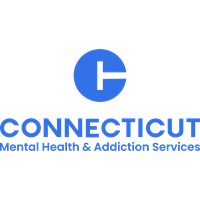Client Rights and Grievance Specialist
 |
DMHAS Office of the Commissioner
Client Rights Specialist
DMHAS Office of the Commissioner 410 Capitol Avenue, 4th Floor, PO Box 341431, Hartford, CT 06134 860-418-7000, (TTY Relay 7-1-1), Confidential Fax: 860-418-6691 William Pierce, Client Rights and Grievance Specialist,
ADA Title II Coordinator william.pierce@ct.gov |
People’s Rights and DMHAS
The Connecticut Department of Mental Health and Addiction Services (DMHAS) and providers contracted by DMHAS honors people’s rights. People’s rights are protected by federal and Connecticut law as well as court rulings and regulations.
To help people understand their rights, all DMHAS operated and contracted providers post two notices:
- DMHAS Everyone Has the Same Rights:
More information on people’s rights can be found on DMHAS webpages including:
2. DMHAS Client Grievance Procedure:
DMHAS and DMHAS contracted providers use the DMHAS Client Grievance Procedure as a way of addressing complaints: DMHAS Client Grievance Procedure webpage.
Each DMHAS operated and DMHAS contracted provider designates a Client Rights Officer who addresses complaints using the DMHAS Client Grievances Procedure: DMHAS and DMHAS contracted provider Client Rights Officers
Contact a statewide advocacy organization if you need help:
- Advocacy Unlimited, Inc. (AU): Phone: 860-505-7581
Website: www.AdvocacyUnlimited.org
Email: info@advocacyunlimited.org
- The Connecticut Legal Rights Project, Inc (CLRP):
Phone: 860-262-5030 Website: http://www.clrp.org
Email: info@CLRP.org
- Disability Rights Connecticut (DRCT):
Phone: 860-422-4220
Website: www.DisRightsCT.org Email: info@DisRightsCT.org
DMHAS Client Rights Specialist
The DMHAS Office of the Commissioner Client Rights Specialist helps DMHAS and DMHAS contracted providers understand people’s rights and use the DMHAS Client Grievance Procedure to resolve complaints.
The Specialist conducts fiscal year surveys of Client Rights Officers. Results of those surveys are compiled into reports:
- Fiscal Year 2022-2023 Client Rights Officer survey [pdf]
- Fiscal Year 2021-2022 Client Rights Officer survey [pdf]
The DMHAS Client Rights Specialist is also the DMHAS ADA Title II Coordinator who helps DMHAS facilities and programs provide persons with disabilities equal access to programs, services and activities they are otherwise qualified to participate in.
DMHAS Client Rights Specialist
DMHAS Office of the Commissioner
410 Capitol Avenue, 4th Floor, PO Box 341431, Hartford, CT 06134
860-418-7000, (TTY Relay 7-1-1), Confidential Fax: 860-418-6691
Links on this page were working at the time this page was published. To report an error, contact the DMHAS Office of the Commissioner.
The CT Department of Mental Health and Addiction Services (DMHAS) complies with all applicable state statutes and federal civil rights laws and does not discriminate on the basis of race, color, national origin, age, disability, or sex.
DMHAS does not exclude people or treat them differently because of race, color, national origin, age, disability, or sex.
DMHAS provides equal access to services and programs and effective communication without surcharge for persons with disabilities and for persons with Limited English Proficiency.
Revised January 2026
DMHAS OOC: Client Rights Specialist, Rev. Jan. 2026

